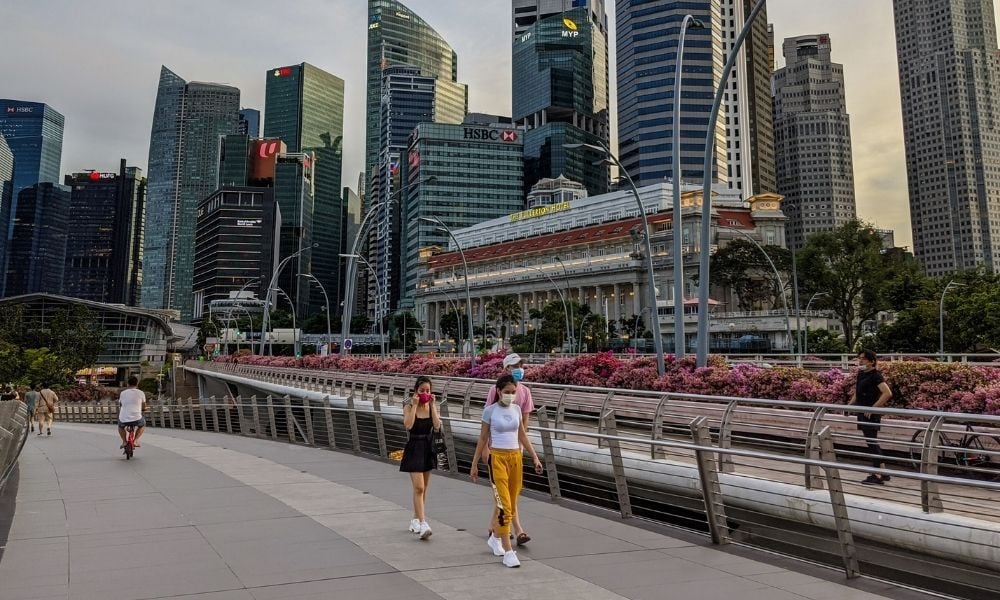
A sudden spike of cases has forced the city-state back to observing the 'rule of two'

Singapore has been forced back into a soft lockdown, or phase 2 (Heightened Alert), just weeks after enjoying a return to ‘normalcy’. From July 22 to August 18, residents must observe the ‘rule of two’ for social gatherings, including house visits, and dining in will not be allowed during the period. As usual, the Ministry of Health (MOH) and their team of officials will do a review of the latest COVID-19 situation two weeks after the measures kick into gear – they will then adjust the restrictions accordingly. The latest rules were announced just as Singapore tackles massive COVID clusters linked with KTV activities and Jurong Fishery Port.
Mask-off activities such as indoor fitness classes and beauty or wellness services like facials, saunas and make-up services will not be allowed during phase 2. Medical and dental consultations that require the removal of masks, however, can resume as per normal.
Read more: Can leaders help ease employees' mental health struggles?
In line with existing measures under ‘heightened alert’, work-from-home will remain the default arrangement for workplaces. Social gatherings at work are also prohibited. “Employers must ensure that employees who are able to work from home do so,” said MOH. “There should continue to be no cross-deployment of workers to multiple worksites. Employers should continue to stagger the start times of employees who need to return to the workplace and implement flexible working hours.”
Employers must continue to send staff for regular testing, for employees who work in places that regularly deal with ‘mask-off’ services and can remain open during phase 2. These regular ‘fast and easy test’ regime will be kept free of charge, said MOH.
Read more: How to keep mental health on track during remote working
The constant back-and-forth of restrictions may hit individuals hard during our prolonged pandemic. In a chat earlier this year, Armaan Seth, head of HR at Syngenta Asia Pacific told us that he understood how it can lead to change fatigue and push people to their breaking point. ““It’s going to be difficult to ensure that people continue with their enthusiasm and patience,” he said. “At some point, people will start complaining. There will be some people who will start feeling a little detached from the organisation.”
A clinical mental health counsellor in Singapore shared how leaders can attempt to identify and support frustrated remote employees during our trying times. Read more about her tips and insights in this article.